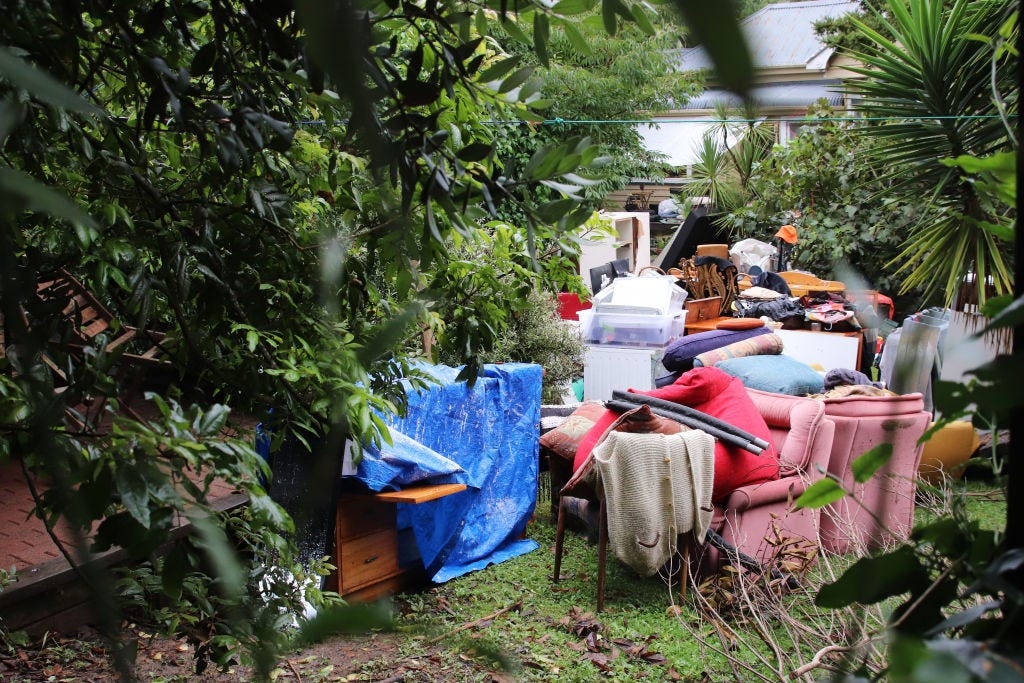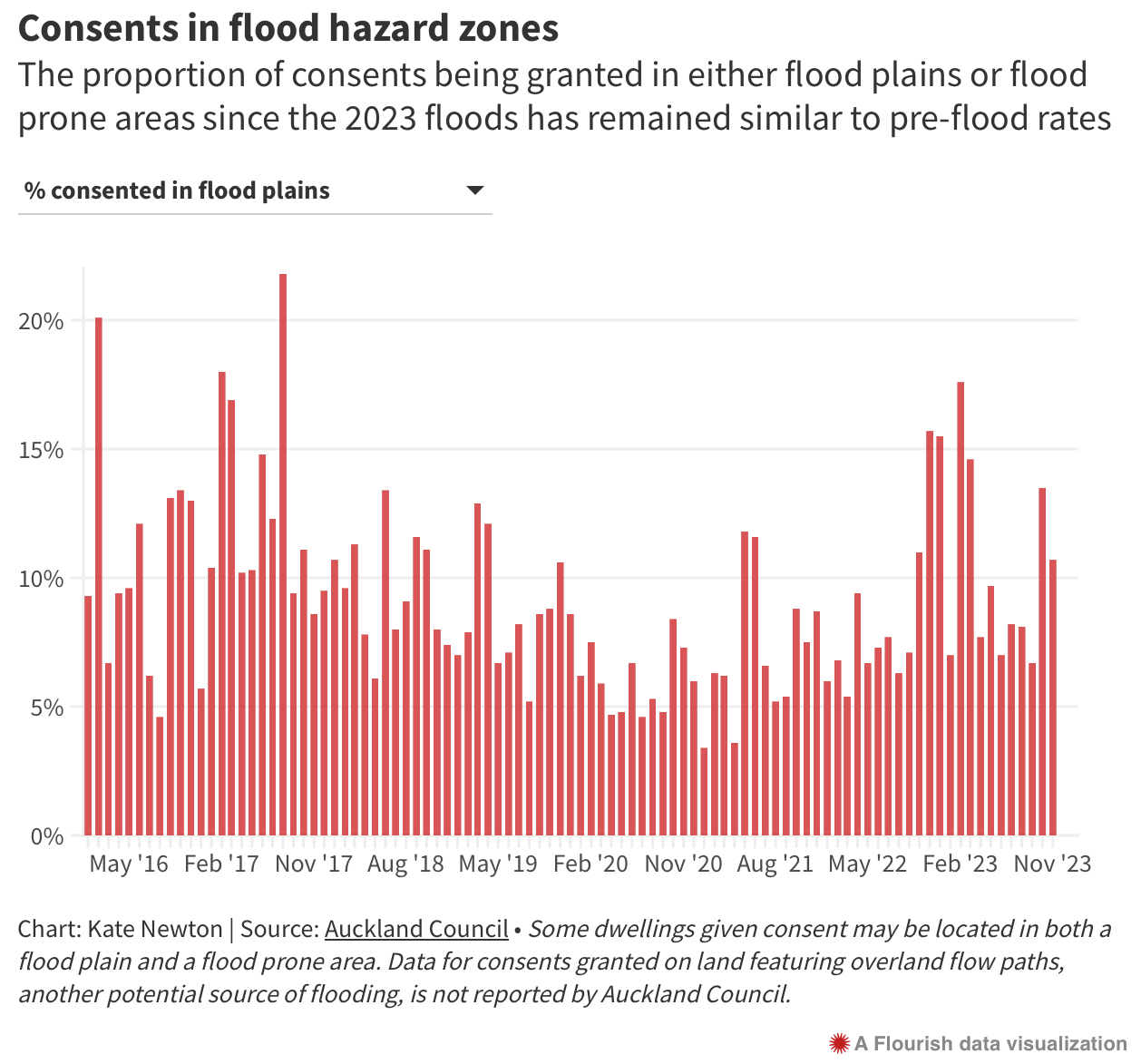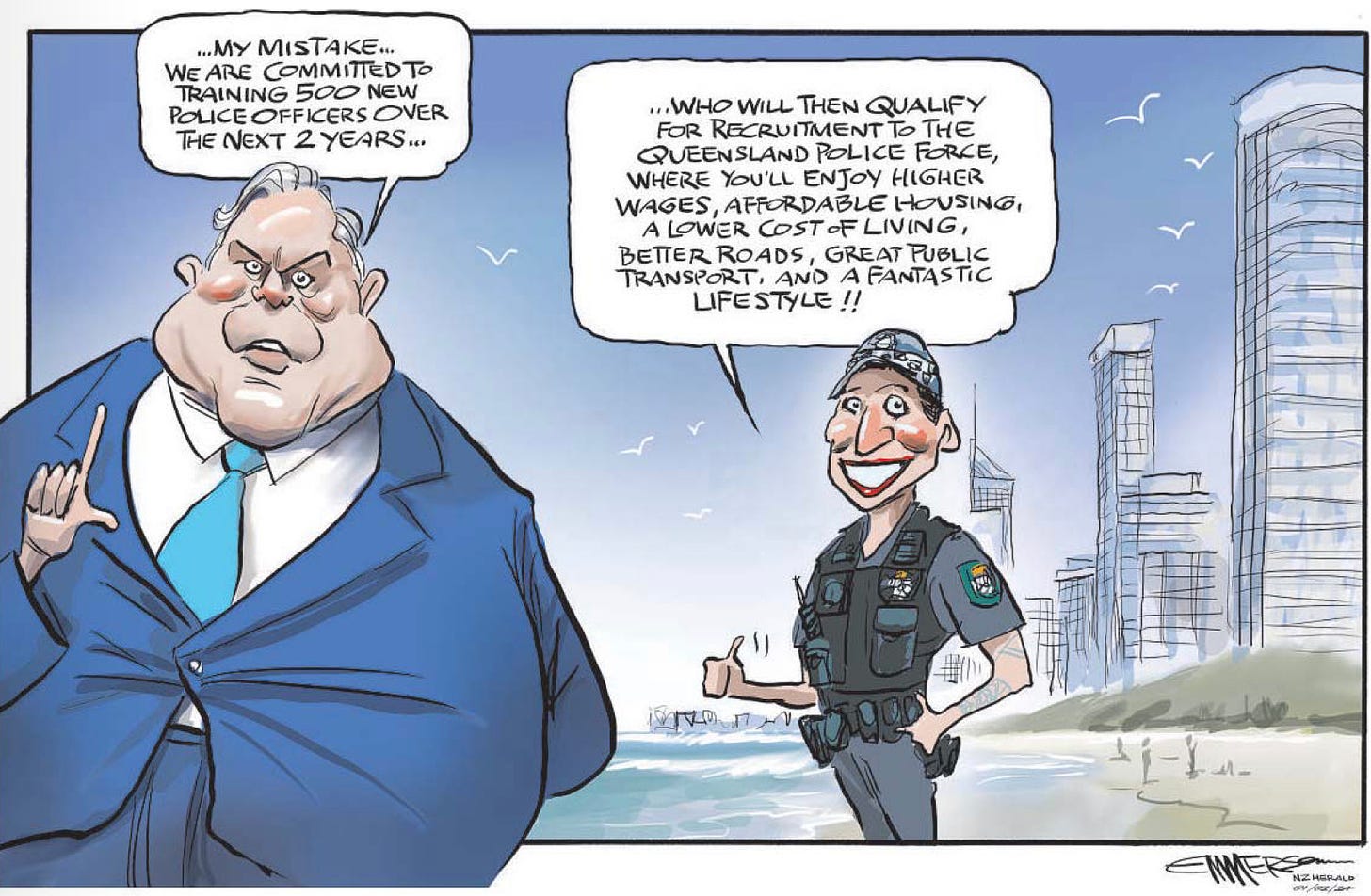
A year on from Cyclone Gabrielle and devastating Anniversary Day floods in Auckland, the new Government and councils remain mired in a pass-the-parcel and make-it-up-as-they-go-along approach to preparing for and responding to climate-change-driven weather catastrophes.
Owners of thousands of now-unliveable homes remain stranded between councils, insurers and the Government, all of whom are trying to offload costs to the each other and the victims. Meanwhile, planners and consenters are still merrily approving new homes on flood plains and avoiding expensive decisions on bigger, better and more resilient stormwater systems, ‘sponge city’ interventions and flood protection.
That’s because the new Government dumped the RMA and Three Waters reforms, and has yet to propose new council funding arrangements or restart work on a Climate Adaptation Act or a National Policy Statement for Natural Hazard decision making. The risks are growing that insurers, bankers and climate change itself will drive the process of Aotearoa-NZ’s climate retreat in an opaque, chaotic and unfair process, in which:
a myriad of family and business financial catastrophes play out in private as their land becomes uninsurable, unbankable and unsaleable, or,
they are blown away and flooded into a never-ending limboland of insurance claims and appeals for buyouts subject to the whims of insurance assessors and financially-driven council officials working at odds against each other and the central Government.
The ad-hoc response to Gabrielle and the Auckland Anniversary floods has led to:
1,415 new homes have been consented on flood plains in Auckland since the Anniversary Day floods RNZ Kate Newton
thousands of homeowners of homes and land damaged in the floods stuck in limbo, often unable to return to and live in their own homes, or afford to pay for alternative accommodation;
homeowners in Hawkes Bay forced to pay for the demolition of the properties they can’t live in anymore because the council says it can’t afford it Stuff Marty Sharpe; and
insurers such as IAG pledging not to insure properties labelled category 2 or 3 as slip or flood-prone homes and saying places such as Petone would not be viable to live in within 30-50 years. BusinessDesk-$$$ Greg Hurrell The Post-$$$ Nicholas Boyack RNZ Hamish Cardwell
Councils, insurance experts, bankers and climate academics are all calling for the Government to urgently restart Parliament’s Environment Select Committee inquiry into Climate Adaptation, in particular considering the recommendations for managed retreat and adaptation funding in the Report of the Expert Working Group on Managed Retreat, which was sent to the previous Labour Government in August last year and has laid dormant ever since.
It recommends:
changing the now-dumped Natural and Built Environment and the Spatial Planning Acts to enable locally-driven adaptation and relocation plans, including the capacity for Crown and/or council-funded land and building buyouts;
decisions on who should fund the buyouts, and how owner-occupiers, rental property owners and holiday-home owners should be compensated;
owner occupiers should receive CV for their properties or a formula on the cost per square metre to build a new home up to a cap;
not-for-profit owners and iwi should be fully compensated in the same way as for owner-occupiers;
rental property and commercial property owners receive less generous payments and be required to reinvest in rental properties in a new location;
second or holiday home owners should receive no (repeat no) compensation;
that central or local Government pay for demolition and cleanup of properties subject to a relocation plan;
that a new crown entity or agency be set up within the Environment Ministry to write and manage the relocation and adaptation plans, which would be publicly available through an online portal;
that risk assessments used in relocation plans be included in Land Information Memorandum (LIM) documents; and,
funding should come from general taxation or a special levy building up a fund.
Industry experts are also calling on the new Government to pick up and adopt the Proposed National Policy Statement for Natural Hazard Decision-making that was put out for consultation ending on November 20 last year and is now stuck between Governments.
I spoke yesterday to Judy Lawrence about these issues in an interview for When The Facts Change via The Spinoff. She is the Adjunct Professor at the Climate Change Research Institute at Te Herenga Waka Victoria University of Wellington and a Climate Commissioner. Her comments in the podcast above available to all were made in her capacity as an adjunct professor, not as a Climate Commissioner.
Full paying subscribers can usually read and hear more detail in my Dawn Chorus podcast above and below the paywall fold, but I’ve decided to pre-emptively open this one up, given the public interest involved. Join our community of paying subscribers to get access to ‘Hoon’ webinars, our private chat system and be able to comment on articles. Paying subscribers also support the public interest journalism we do at The Kākā on housing affordability, climate emissions and poverty.
Chart of the day
Have we learned or changed anything?

Quotes of the day
Making New Zealand great again through…more lending
“We do need rules and regulations, but what I really want to do is get this industry cracking,” Commerce Minister Andrew Bayly after announcing to a Financial Services Council conference in Auckland yesterday a loosening of CCCFA rules and the transfer of regulation of bank and other lending from the Commerce Commission to the FMA via BusinessDesk-$$$ Dileepa Fonseka. Bayly earlier cited industry figures that CCCFA rules that would be changed had prevented mortgage approvals by 6-7% of applicants. Stuff Susan Edmunds
Cartoons of the day
A satellite country

‘Stop mucking around’

Timeline cleansing nature pic of the day
Fungi galore
Ka kite ano
Bernard












Share this post